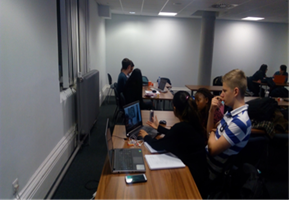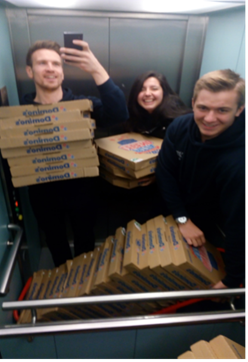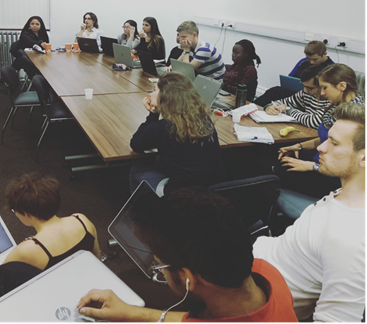Group Size
?
1.) Small group (teams of 4-6)
2.) Individual Task
3.) Large Group
4.) Any
Large Group
Learning Environment
?
1.) Lecture Theatre
2.) Presentation Space
3.) Carousel Tables (small working group)
4.) Any
5.) Outside
6.) Special
Special
QAA Enterprise Theme(s)
?
1.) Creativity and Innovation
2.) Opportunity recognition, creation and evaluation
3.) Decision making supported by critical analysis and judgement
4.) Implementation of ideas through leadership and management
5.) Reflection and Action
6.) Interpersonal Skills
7.) Communication and Strategy
1Creativity and Innovation
2Opportunity recognition‚ creation and evaluation
3Decision making supported by critical analysis and judgement
4Implementation of ideas through leadership and management
5Reflection and Action
6Interpersonal Skills
7Communication and Strategy
0Digital and Data Skills
The StartUp Factory weekend is designed to inspire creativity, foster innovation, and cultivate essential business skills. This immersive experience offers participants a unique opportunity to ideate, develop business models, and showcase their entrepreneurial prowess in a thrilling pitching competition. With a focus on themes such as creativity, interpersonal skills, leadership, critical analysis, and opportunity recognition, this hackathon promises to be a transformative journey for aspiring entrepreneurs and business enthusiasts alike.
50 students from across the 4 Colleges at the University of Glasgow (undergraduate and postgraduate) were selected, through an application process, to take part in the StartUp Factory Weekend. 130 students registered to take part, but numbers were restricted by the University as it was one of our first in-person activities post Covid. The purpose of the application process was to ensure a good mix of disciplines and experiences, with a strong emphasis on following the university’s Diversity, Equality, and Inclusion (DEI) strategy. The selected students initially met on Friday afternoon, with the first session beginning at 16:00 in the Student Representative Council’s Halls (John McIntyre Building), where the event was hosted.
“Didn’t know what to expect but learned so much and had a great time meeting new people”. Adele Lu, ASBS
“Excited to have come second it the pitching competition! We really want to take our idea forward now”. Team Athena Straw
“I have already been working on a business idea, but it was good to have the opportunity to brainstorm with other likeminded students”. Charlie Greener, Theria
Resources:
Pictures or images:


